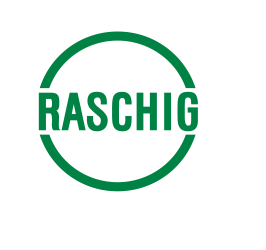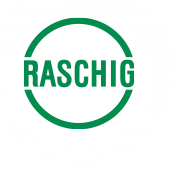Raschig GmbH acts in accordance with ethical principles and values.
These include…
- Accountability
- Integrity
- Respect
- Justice
- Sustainability
- Transparency
- Social co-responsibility
- Human rights and working conditions
- Occupational health and safety
- Fair competition
It is important to us…
…to ensure the principles outlined below in our supply chain.
You, as our valued business partner, …
…can recognize the principles stated in our Code of Conduct or demonstrate your commitment to these principles through your own Code of Conduct or through your own company policy that includes these standards.
1. Personal responsibility
Every individual within our organization bears the responsibility for their specific domain and must be willing to address any deficiencies. We hold our suppliers of raw materials and services to the same standard.
Responsible individuals are those who:
- Acknowledge accountability for errors or issues within their area, even if they occurred unintentionally, and take necessary steps to rectify them.
- Exercise discretion when accepting mandates, especially if conflicts of interest could arise due to compelling reasons.
- Furthermore, acting in good faith also entails liability for damages, regardless of whether they were foreseeable or intentional.
2. Integrity
Individuals should adhere to moral obligations based on their own understanding and conscience.
Those who embody integrity:
- Refrain from engaging in illegal or questionable practices, such as corruption, to gain an unfair advantage.
- Courageously uphold their convictions, even when expressing uncomfortable truths.
- Demonstrate reliability, openness, trustworthiness, and honesty.
- Treat commitments and promises as binding and honor them.
Integrity also involves acknowledging the possibility of being mistaken on moral matters.
3. Respect
It is essential to acknowledge and honor every individual’s right to self-determination and equal treatment.
Respect is exemplified by those who:
- Refrain from discriminatory behavior based on gender, age, origin, sexual orientation, religious affiliation, disability, or similar factors.
- Ensure customers’ freedom of choice by providing accurate information and maintaining a transparent brand image.
- Communicate honestly and comprehensively with employees about the company’s status and internal processes.
- Balance the interests of both employers and employees through well-regulated agreements.
- Fairly compensate employees, adhering to national wage regulations (such as minimum wage agreements) and providing suitable social amenities.
- Create a workplace that aligns with national occupational health and safety regulations.
- Handle personal data in accordance with national and international legislation, including the EU General Data Protection Regulation.
- Listen to diverse opinions, concerns, and objections without bias and incorporate them appropriately into the overall decision-making process.
In this context, Raschig GmbH has proactively implemented the provisions outlined in the Whistleblower Protection Act.”
In contexts characterized by unequal power dynamics, mere respect may fall short. A sense of attentiveness becomes crucial. This attentiveness encompasses a commitment to safeguarding the future welfare of others. Such vigilance is particularly essential during impending layoffs, and whenever feasible, comprehensive social support systems are put in place to mitigate the multifaceted impact—be it social, psychological, or financial.
4. Justice
In matters of distributing goods, burdens, and compensating damages, it is essential to adhere to criteria that withstand objective scrutiny and can be justified universally. When allocating contracts, positions, or privileges and determining compensation, a transparent process with clear and justifiable criteria should be employed. Any self-serving appeals that lack a basis in justice are impermissible.
5. Sustainability
In the realm of business development and processes, it is imperative to ensure that natural resources are not depleted, and their sustainable use is safeguarded for the long term.
Those who embrace sustainability:
- Base their decisions on promoting the long-term quality of life for all stakeholders.
- Organize international economic relations to benefit all parties over the long haul.
- Invest in environmental initiatives that yield maximum long-term ecological benefits.
Furthermore, sustainability entails a responsibility toward future generations. Ensuring their freedom of choice in shaping their own lives is paramount.
6. Transparency
Honest and open communication is just as important as the willingness to guarantee access to all relevant information.
Acting transparently means:
- Disclosing conflicts of interest
- Explaining information constraints
- Equal information flow, e.g. inform stakeholders just as correctly as the decision-makers
- Early disclosure of errors and challenges
- Balancing transparency and privacy.
7. Social responsibility
A conscientious company demonstrates its commitment to
- Shared responsibility by actively endorsing socially necessary initiatives
- Promoting public well-being
- Adhering to tax regulations without resorting to unfair practices
- Ensuring product and transport safety through rigorous quality controls and safety data sheets
- Empowering employees to engage meaningfully in community endeavors.
It is essential for us to ensure the principles of sustainable development in our supply chain. You, as our valued business partner, can recognize the principles stated in our Code of Conduct or demonstrate your commitment to these principles through your own Code of Conduct or through your own company policy that includes these standards.
8. Human rights and working conditions
- Raschig GmbH supports the legal requirements of the Federal Republic of Germany and the European Union and implements them within its sphere of influence. The Youth Employment Protection Act (JArbSchG) prohibits child labor and regulates working conditions for young people.
- Working hours at Raschig GmbH are regulated in accordance with the Working Hours Act (ArbZG). The electronic working time recording system documents the hours worked. The allocation of overtime is only possible via a separate approval procedure.
- Raschig GmbH respects the right of its employees to stop work. There is a works council that represents the interests of the employees vis-à-vis the management. The company works closely and respectfully with this council.
- Raschig GmbH strictly opposes conditions that are described as “modern slavery”. The company’s own employees are employed and paid in accordance with the collective agreement. External partners are also subject to the legal requirements.
- Raschig GmbH attaches great importance to trusting, long-term employment relationships. For this reason, job advertisements are formulated thoroughly and comprehensively. All applications for vacancies are considered, regardless of gender, origin, sexual orientation, religion or disability.
- Raschig GmbH uses adjacent bodies of water, in particular the Rhine. It has extensive water rights permits for this. The factory premises are owned by the company. Forced evictions are not in the interests of the company and are not carried out either directly or indirectly.
- Raschig GmbH uses private security personnel from a contractually regulated service provider to ensure the safety of employees and the facilities. They are not used to monitor employees. Security guards are only deployed against individual employees to ensure the safety of other employees.
9. Occupational safety
Protecting the health of its employees is a top priority for Raschig GmbH. This is reflected in compliance with national legal regulations.
- The company medical offer and mandatory preventive care is carried out regularly. The existence of good working conditions is monitored in workplace inspections by company doctors and occupational safety specialists; countermeasures are taken in the event of deviations.
- Employees are regularly instructed in the handling of chemicals. To protect employees, work is usually carried out in closed systems. Where this is not possible, extraction systems are used.
- All employees are provided with the protective equipment required for their respective work and their use is monitored. Attention is also paid to ergonomics.
- Work on machines is only carried out after appropriate instruction. Operating instructions are available on site. Machines and equipment are regularly maintained, checked and inspected.
- The legally prescribed proportion of employees act as first responders. Cell phones and a dense network of stationary equipment mean that first aiders and the plant fire department can be alerted very quickly.
- Accidents and near-accidents are documented. Causes are investigated and preventive measures are defined. Crisis teams meet in the event of major incidents or accidents.
- Structural fire protection is complied with in accordance with legal requirements. The plant is monitored by a network of fire detectors and IR flame detectors. Raschig GmbH has an own plant fire department. All this is documented in a fire protection concept.
10. Fair competition
Raschig GmbH is committed to the principles of fair competition within a free market economy.
This includes:
- Free pricing in compliance with antitrust law.
- Respect for the intellectual property of others.
- Strict compliance with economic export controls and political sanctions.





